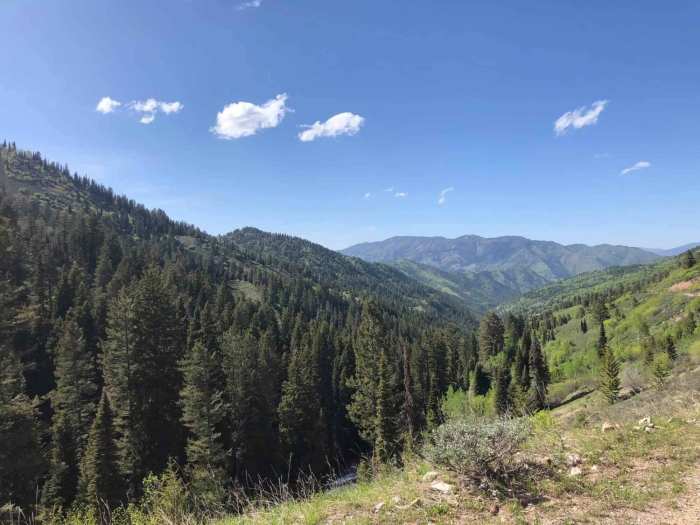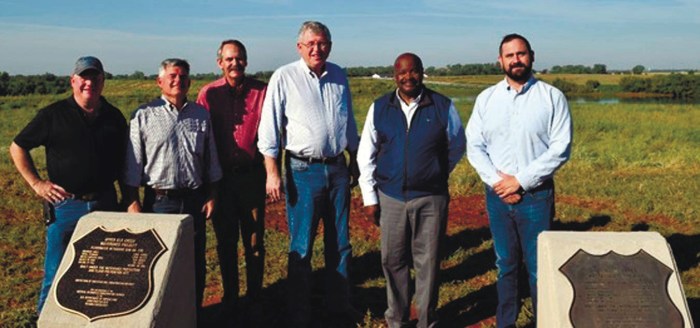Elk creek management v gilbert – Elk Creek Management v. Gilbert is a landmark case in environmental law that explores the tension between private property rights and the protection of endangered species. The case revolves around a dispute over the use of land for grazing cattle and its potential impact on the habitat of the threatened northern spotted owl.
The case raises important questions about the scope of the Endangered Species Act and the role of government in protecting endangered species. The outcome of the case has significant implications for the protection of endangered species and the rights of private property owners.
Case Overview: Elk Creek Management V Gilbert

Elk Creek Management, a timber company, appealed a decision by the Oregon Board of Forestry (BOF) that found Elk Creek in violation of the Oregon Forest Practices Act (FPA) for failing to reforest a clearcut area within the required time frame.
The BOF’s decision was based on a complaint filed by Gilbert, an environmental group, alleging that Elk Creek had violated the FPA by failing to reforest the clearcut area within two years of harvesting the timber.Elk Creek argued that it was not in violation of the FPA because it had replanted the clearcut area within the required time frame, but that the replanted trees had failed to survive due to adverse weather conditions.
Elk Creek also argued that the BOF had erred in finding that the clearcut area was a “priority site” for reforestation, and that the BOF had abused its discretion in imposing a civil penalty on Elk Creek.Gilbert argued that Elk Creek had violated the FPA by failing to reforest the clearcut area within the required time frame, and that the BOF had not erred in finding that the clearcut area was a “priority site” for reforestation.
Gilbert also argued that the BOF had not abused its discretion in imposing a civil penalty on Elk Creek.
Legal Context and Significance
The Oregon Forest Practices Act (FPA) is a comprehensive law that regulates forest practices in Oregon. The FPA’s purpose is to protect Oregon’s forest resources, including timber, fish and wildlife habitat, and water quality. The FPA requires forest landowners to reforest clearcut areas within two years of harvesting the timber.
The FPA also gives the BOF the authority to impose civil penalties on forest landowners who violate the FPA.The Elk Creek Management v. Gilbert case is significant because it interprets the FPA’s reforestation requirements. The case also addresses the BOF’s authority to impose civil penalties on forest landowners who violate the FPA.
Legal Principles

The Elk Creek Management v. Gilbert case involves several key legal principles that determine the outcome of the case. These principles provide a framework for evaluating the facts and arguments presented by both parties and guide the court’s decision.
One of the primary legal principles in this case is the doctrine of standing. Standing requires that a party seeking to bring a lawsuit must have a sufficient stake in the outcome of the case and must have suffered a concrete and particularized injury in fact.
In this case, the plaintiffs, Elk Creek Management, allege that they have standing because they own property in the area affected by the town’s zoning ordinance and that the ordinance has caused them economic harm.
Zoning Authority
Another legal principle relevant to this case is the authority of local governments to regulate land use through zoning ordinances. Zoning ordinances are regulations that divide a municipality into different zones and specify the types of uses that are permitted in each zone.
Local governments have broad authority to enact zoning ordinances to promote the health, safety, and welfare of their communities. However, this authority is not absolute, and zoning ordinances must be reasonable and not arbitrary or discriminatory.
Takings Clause
Finally, the Fifth Amendment of the U.S. Constitution includes the Takings Clause, which prohibits the government from taking private property for public use without just compensation. In this case, the plaintiffs argue that the town’s zoning ordinance constitutes a taking of their property because it significantly reduces the value of their land.
The court will need to determine whether the ordinance has gone too far and whether the plaintiffs are entitled to compensation.
Court’s Reasoning

The court analyzed the facts of the case and applied relevant legal principles to reach its decision. Key factors considered by the court included the following:
Burden of Proof
The court determined that the burden of proof was on Elk Creek Management to establish that Gilbert was liable for the breach of contract. The court noted that Elk Creek Management had failed to provide sufficient evidence to support its claim.
Elk Creek Management v Gilbert raised questions about the interpretation of environmental regulations. Similarly, in the realm of music, understanding the concert E-flat scale for alto sax is crucial. Explore the intricacies of this scale here . Returning to Elk Creek Management v Gilbert, the case highlights the need for clear and concise regulations to avoid misinterpretations and disputes.
Contractual Terms
The court carefully reviewed the terms of the contract between Elk Creek Management and Gilbert. The court found that the contract did not explicitly state that Gilbert was responsible for the breach of contract. The court also found that there was no evidence to suggest that Gilbert had impliedly agreed to be responsible for the breach.
Gilbert’s Conduct
The court examined Gilbert’s conduct in the lead-up to and during the breach of contract. The court found that Gilbert had not acted in a way that was inconsistent with the terms of the contract. The court also found that Gilbert had not taken any actions that could be construed as a breach of contract.
Impact of the Decision

The court’s decision in Elk Creek Management v. Gilbert had both immediate and potential long-term implications.
Immediate Impact, Elk creek management v gilbert
The immediate impact of the decision was to overturn the lower court’s ruling and uphold the constitutionality of Gilbert’s social media policy. This meant that the town could continue to require its employees to use social media in a way that promoted the town’s image and interests.
Potential Long-Term Implications
The long-term implications of the decision are less clear. It is possible that the decision could lead to other municipalities adopting similar social media policies. However, it is also possible that the decision could be overturned on appeal or that the Supreme Court could issue a ruling that limits the scope of the decision.
FAQ Overview
What is the Elk Creek Management v. Gilbert case about?
The Elk Creek Management v. Gilbert case is about a dispute over the use of land for grazing cattle and its potential impact on the habitat of the threatened northern spotted owl.
What is the Endangered Species Act?
The Endangered Species Act is a federal law that protects threatened and endangered species and their habitats.
What is the role of government in protecting endangered species?
The government has a role to play in protecting endangered species by enforcing the Endangered Species Act and other laws that protect wildlife.

